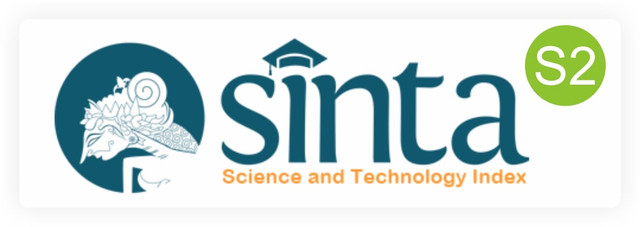Combination of Spirulina platensis powder and Stichopus variegatus powder against Bcl2 expression in the hippocampus of dementia Rats
DOI:
https://doi.org/10.12928/pharmaciana.v14i1.26205Keywords:
Bcl2, Dementia, Spirulina platensis, Stichopus variegatus, TrimethyltinAbstract
Spirulina (Spirulina platensis) and golden sea cucumber (Stichopus variegatus) are known to have antioxidant activity that has the potential to prevent neurodegeneration disease. The aim of this study was to examine the effect of the combination of spirulina and golden sea cucumber on Bcl2 gene expression in pyramidal hippocampus cells of trimethyltin-induced dementia (TMT) rats. The study used Sprague Dawley rats which were divided into 6 groups, namely the normal control group (CMC-Na and NaCl 0.9%), pain control (CMC-Na and TMT), positive control (citicoline dose 200 mg / kg and TMT) and test control injected with TMT and given a combination of spirulina and golden sea cucumber dose 200 mg/KgBB with three ratios namely 3: 1, 1: 1 and 1: 3. Extract and citicoline were given on day 1 to day 28, while TMT injection was given a single dose of 8 mg/KgBB on day 8. On the 36th day the rats were sacrificed, brains were removed and the right hemispherium cerebri was fed to 10% formalin in pbs. After 6 days the hippocampus was separated for immunohistochemical observation. The test result data was statistically analyzed with a one-way ANOVA test then followed by post hoc tukey to see the differences between groups. Results showed the combination of spirulina and golden sea cucumber can increase the expression of the Bcl2 gene in the hippocampus. The combination of spirulina and golden sea cucumber (ST1: 3) dose of 200 mg / kg body weight was able to increase hippocampus Bcl2 expression with the number of Bcl2 cell expression almost the same as citicoline in both CA1 and CA2-CA3 regions.
Downloads
Published
Issue
Section
License
Authors who publish with Pharmaciana agree to the following terms:
- Authors retain copyright and grant the journal the right of first publication with the work simultaneously licensed under a Creative Commons Attribution License (CC BY-SA 4.0) that allows others to share the work with an acknowledgment of the work's authorship and initial publication in this journal.
- Authors are able to enter into separate, additional contractual arrangements for the non-exclusive distribution of the journal's published version of the work (e.g., post it to an institutional repository or publish it in a book), with an acknowledgment of its initial publication in this journal.
- Authors are permitted and encouraged to post their work online (e.g., in institutional repositories or on their website) prior to and during the submission process, as it can lead to productive exchanges, as well as earlier and greater citation of published work.


1.png)











